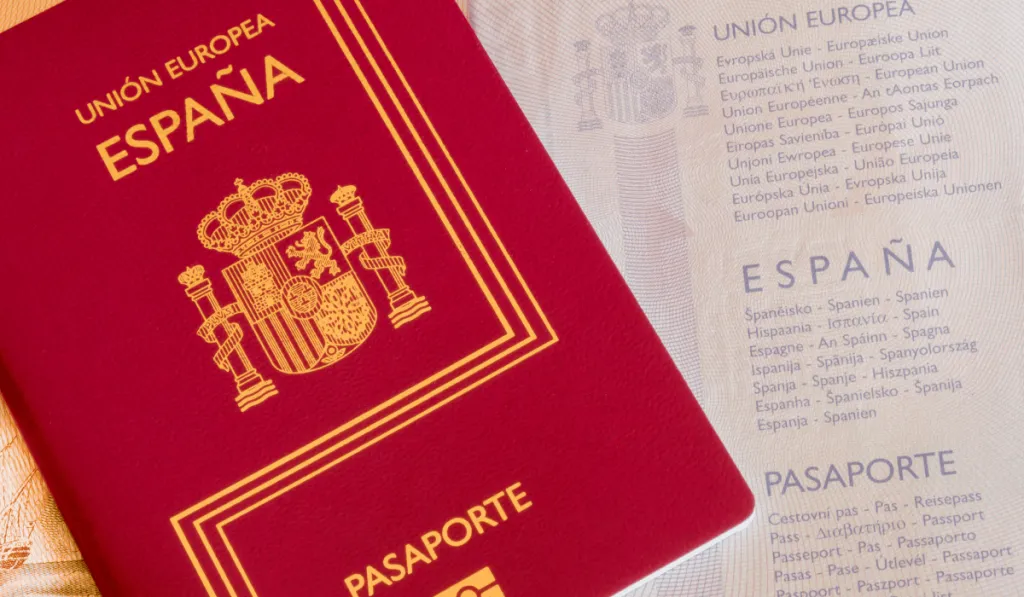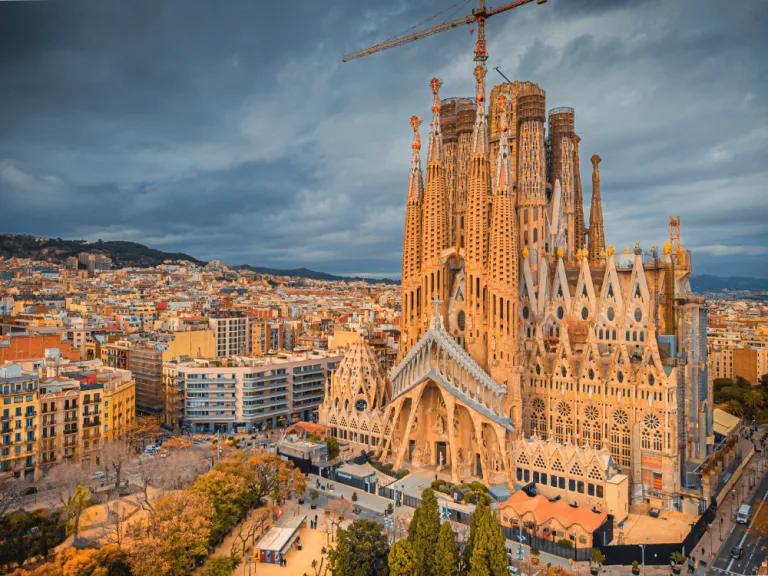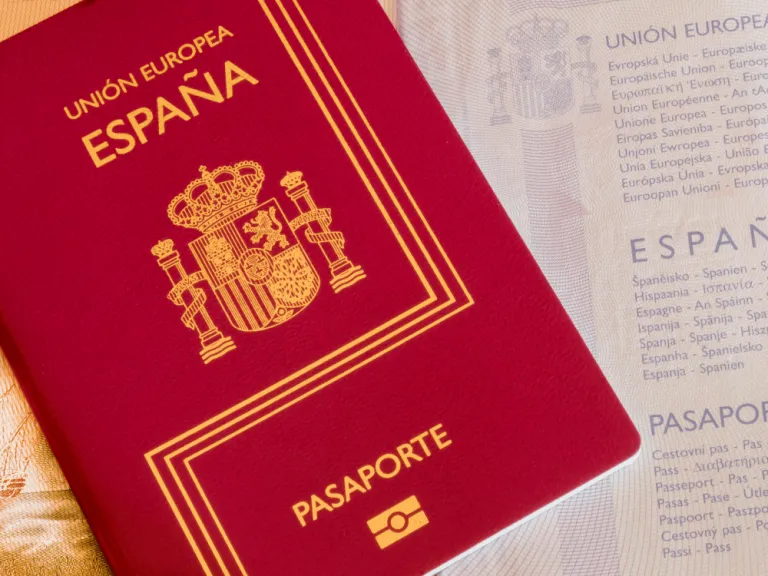Our favourite places to stay on this sleepy Cebu island.
Can Filipinos Apply for Spanish Citizenship? Here’s What You Need to Know

For many Filipinos, Spanish Citizenship feels like a distant dream, an idea reserved for history books or distant European bloodlines. But thanks to Spain’s evolving immigration policies and our shared colonial history, that dream might be closer than you think.
 The Cathedral of La Sagrada Familia | Pelin Oleg's Images via Canva Pro
The Cathedral of La Sagrada Familia | Pelin Oleg's Images via Canva Pro
If you have a Spanish grandparent or are planning to live and work in Spain, there are real, practical routes that could lead you to become a full-fledged Spanish citizen. Whether it’s through ancestry or residency, the opportunities are well worth exploring, especially if you’re hoping to expand your horizons across Europe.
Also read: Spain’s New Check-In Requirements: What Travellers Should Prepare For
Can Filipinos apply for Spanish Citizenship?
Yes. There are two main ways Filipinos can apply for Spanish citizenship: through descent or legal residency. Due to the Philippines’ historical ties with Spain, the requirements for Filipino nationals are often more lenient compared to other nationalities. In some cases, you may even acquire dual citizenship, meaning you won’t have to surrender your Philippine passport.
Let’s break down both routes:
Route 1: Spanish Citizenship by descent
If you have a Spanish parent or grandparent, especially one born in Spain, you may qualify for Spanish citizenship through ancestry. This has become even more accessible with the introduction of the Ley de Nietos or Grandchildren Law.
Passed in 2022 as part of the Law of Democratic Memory, this legislation was designed to honour those who were persecuted or exiled under the Franco regime. It allows their descendants, including children and grandchildren, to reclaim Spanish nationality.
Here are the main eligibility cases:
Your Spanish ancestor was exiled due to political or religious persecution.
Your grandmother lost her Spanish citizenship after marrying a foreigner before 1978.
Your parent gained citizenship through the earlier Historical Memory Law, but you missed out due to age.
You are a grandchild of someone born in Spain.
If any of these apply to you, it’s time to gather your documents. You’ll need:
Your and your ancestor’s birth certificates
Criminal background checks from both countries
A DELE A2 language certificate
A CCSE certificate (test on Spanish laws and culture)
Legalised and translated documents
Proof of payment for the €100 application fee
Applications typically take two to three years to process. If you don’t hear back after 12 months, it’s considered a “rejection due to administrative silence.” But don’t worry, appeals are allowed.
The key here is accuracy. A single typo or missing stamp can delay your application for months. It’s highly recommended to consult an immigration lawyer, especially if you're applying from the Philippines or dealing with complex paperwork.
 Image credit: Photitos2016 via Canva Pro
Image credit: Photitos2016 via Canva Pro
Route 2: Spanish Citizenship by residency
Don’t have Spanish blood? Don’t worry. If you’re already living in Spain or planning to move there for work, study, or even love, you may be eligible for Spanish citizenship by residency.
Here’s the good news: most foreigners need to live in Spain for 10 years to qualify for naturalisation, but for Filipinos, it’s only two years, thanks to a long-standing agreement between our countries.
To qualify, you’ll need:
A valid long-term residence permit (student and tourist visas don’t count)
Continuous stay in Spain (no more than 3 months abroad in a year)
Clean criminal record
Proof of income, housing, and health insurance
Pass the DELE A2 and CCSE tests
It’s one of the fastest citizenship pathways in the EU for Filipinos, but it does require commitment, paperwork, and financial planning. Many Filipinos take this route after moving to Spain for work or marrying a European Union citizen.
What are the benefits?
Acquiring Spanish citizenship comes with significant advantages. You’ll gain visa-free access to over 180 countries, the right to live, work, and study anywhere in the European Union, access to free public healthcare, and the ability to own property or start a business in Europe.
But more than that, it’s personal. It’s about embracing a layered identity, honouring your family history, and stepping into a future where you belong to two worlds.
Also read: Here's Why Filipinos Love Travelling to Spain for Their Holidays
A passport to the past and future
For a country like the Philippines, shaped by centuries of colonisation, the option to reclaim Spanish citizenship carries both symbolic and practical weight. It’s not about trading nationalities, but about acknowledging history, honouring ancestry, and opening doors for future generations.
So, whether you're digging through family records or booking that one-way flight to Madrid, know that this journey is more than just bureaucracy. It’s your heritage, your future, and your right.
Published at
About Author
Jennylene Dela Cruz
Subscribe our Newsletter
Get our weekly tips and travel news!
Recommended Articles
10 Bantayan Island Resorts, Hotels, and Rentals for Your Tropical Escape 10 Best Mountain Cafes in the Philippines for Your Peak Coffee Experience Coffee date on the mountains, anyone?
10 Best Things to Do in Los Angeles Los Angeles is more than Hollywood stars. From hikes with killer views to beaches straight out of a rom-com, here are 10 must-do LA experiences for Filipino travellers or any wanderers in general!
10 Creative Hangout Spots Around Metro Manila for Artsy Souls Looking for a place to meet fellow artists and thinkers? Here are 10 collaborative spaces in Metro Manila where creatives can hang out, brainstorm, and build ideas.
10 Cutest Cafes in Japan That Are Totally One of a Kind From Pikachu snacks to Totoro cream puffs, here are 10 themed cafes in Japan that prove café hopping should be part of your travel itinerary.
Latest Articles
Filipinos Can Now Travel to Armenia Visa-Free! Check the 2026 requirements and a 5-day itinerary here.
New Zealand Confirms 2026 Working Holiday Visa Dates and Limited Slots 2026 visa application guide
MRT-7 Partially opens 6 New Stations From Caloocan to QC DOTr eyes partial operations for 6 stations between Sacred Heart and Tandang Sora
Philippine Airlines to Move Siargao and Coron Flights to Clark International Airport Philippine Airlines is moving key island flights out of NAIA this March.
PAL Now Allows Small Dogs on All Domestic Flights in the Philippines Flying with your dog

